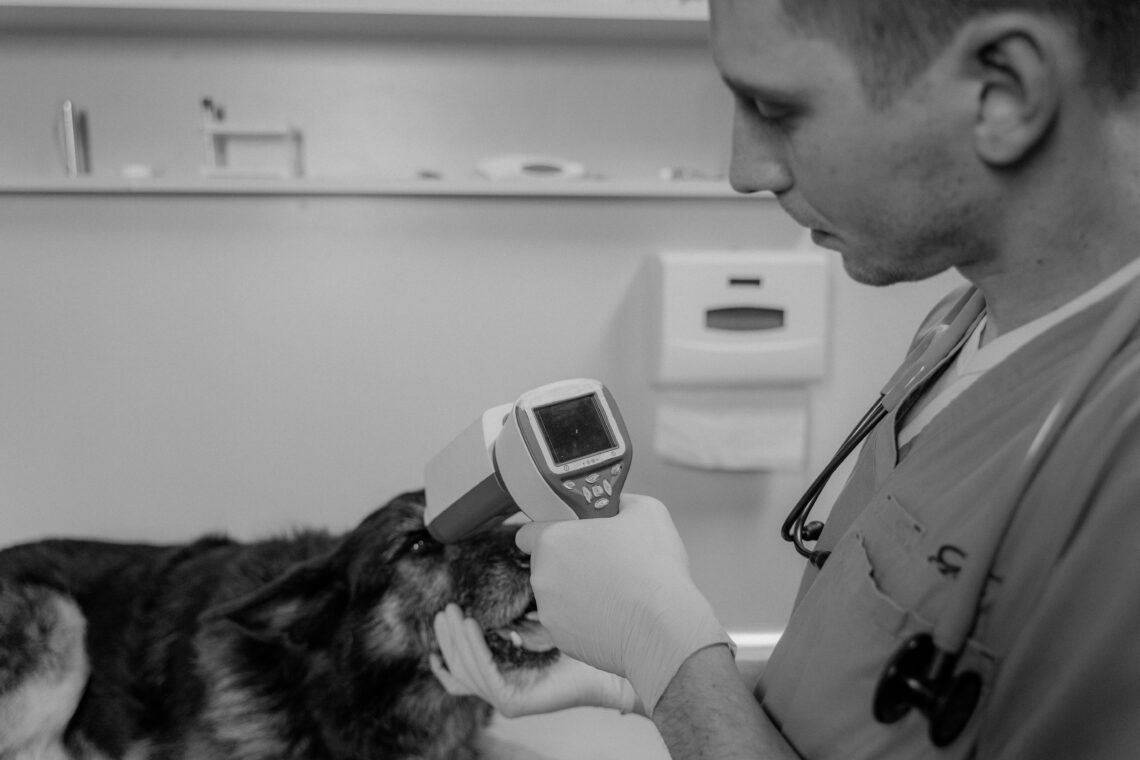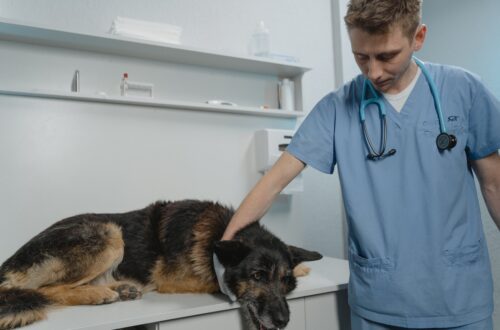
Infectious Canine Hepatitis: Signs, Diagnosis, Vaccination, and Treatment
One of your dog’s essential immunizations is against infectious canine hepatitis (ICH). Due to extensive canine vaccination campaigns, ICH is now uncommon, although unvaccinated pups and adult dogs remain susceptible to this potentially fatal illness. Dogs that recover from ICH may also have chronic renal and ocular issues.
Liver inflammation is the definition of hepatitis. Infectious canine hepatitis (ICH) is a particular illness that arises from a viral infection caused by an adenovirus. The ICH virus is not harmful to humans, however it can infect otters, bears, and other members of the canine family, such as foxes.
Spread of Infectious Canine Hepatitis:
Canine adenovirus 1 (CAV-1) is the source of the extremely infectious infection known as ICH, which affects both canines and certain mammals such as bears, wolves, and coyotes. While ICH can impact other organ systems such as the lungs, gastrointestinal tract, kidneys, and central nervous system, hepatitis is mostly associated with inflammation of the liver. Clotting diseases and vision issues can also be brought on by ICH. Due to similarities in the affected organ systems and clinical signs, this virus is frequently misdiagnosed as parvovirus or infectious tracheobronchitis.
The main way that ICH is transmitted is via coming into contact with an infected animal’s body fluids, such as saliva, feces, or urine. The most vulnerable dogs to a serious illness are puppies or adult dogs with underlying medical conditions; older dogs may show moderate symptoms that can be treated without medical intervention.
ICH can spread in dogs through the following common routes:
- Eating or drinking the pee or excrement of an infected dog
- Direct interaction with a canine carrier
- Contact with diseased wildlife
- Interaction with sneeze droplets from an infected dog
- Presence of affected dogs at a shelter or boarding home
Signs and symptoms:
The severity of ICH symptoms varies depending on the immune system of the infected dog and is comparable to other prevalent infectious illnesses in dogs. Signs vary on the afflicted organ system and might appear two to five days after ICH exposure. When a dog is diagnosed with ICH, the virus may be detected in their urine for longer than six months. In rare situations, ICH can be deadly. Symptoms might include:
- Abdominal pain
- Bruising
- Corneal clouding or a blue hue to the eyes
- Depression
- Difficulty breathing
- Elevated heart rate
- Eye and nasal discharge
- Fever
- Lethargy
- Loss of appetite
- Nasal congestion
- Redness around the eyes
- Seizures
- Sneezing and coughing
- Vomiting and diarrhea
- Yellowing of the skin

Diagnosis:
If your dog exhibits ICH symptoms, they require a veterinarian’s inspection. The clinical indicators, possible ICH exposure history, and your dog’s medical history all play a role in the diagnosis. A conclusive diagnosis can be made using a PCR test to search for virus particles in samples of an infected dog’s urine, discharge, or saliva, or it can be made using a serology test to check for CAV-1 antibodies. A serum biochemistry test to assess organ function and a complete blood count to look for secondary infections or related diseases are examples of further diagnostic procedures. Tests for coagulation could also be suggested to look for issues with blood clotting. An X-ray or ultrasound is an example of advanced imaging that may be used to assess the presence of abdominal fluid or an enlarged liver. Occasionally, a liver biopsy is best method for diagnosis.
Treatment:
An infection with ICH cannot be cured. Dogs who receive emergency medical attention may recover, but they may also have chronic kidney or eye issues. The majority of dogs will need supportive care while in the hospital. Possible course of treatment:
- Intravenous fluids to prevent dehydration
- Antibiotics to prevent secondary bacterial infections
- Anti-inflammatory medications
- Anti-nausea medications
- Anti-seizure medications
- Antiviral medications
- Blood transfusions
- Eye medications
- GI protectants
- Oxygen therapy
- Pain relievers
- Specialized diet
Vaccination:
Reducing the occurrence of this illness with vaccination has proven to be quite effective. In puppy immunization regimens, the ICH vaccine is regularly given. Although protection lasts for several months, it eventually wears off. Your veterinarian will go over your dog’s recommended immunization regimen, including the necessity of booster shots, once your dog reaches adulthood. The American Animal Hospital Association (AAHA) advises immunizing all dogs against ICH with an authorized vaccination every three years following the initial yearly booster.




